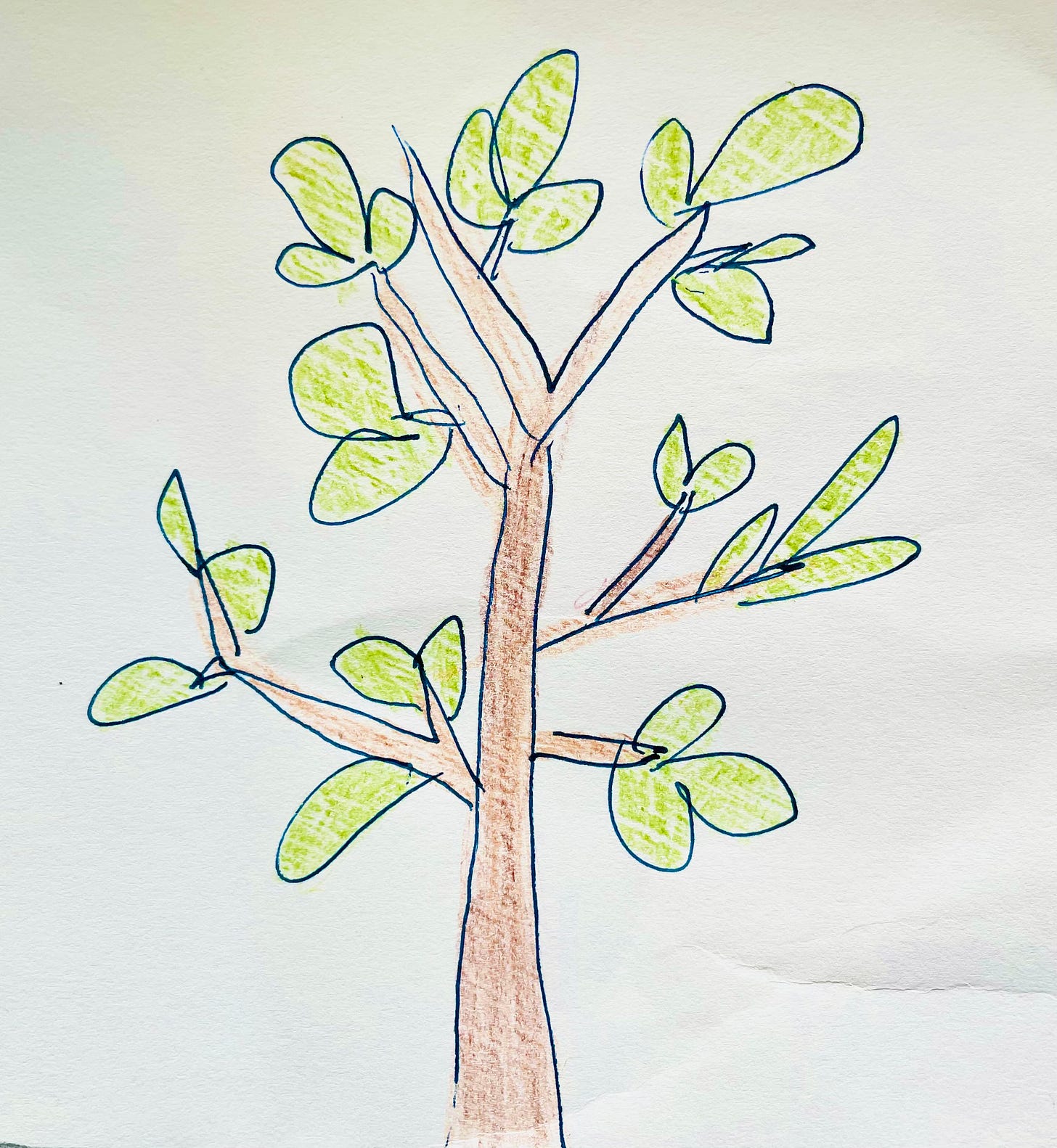The Product Tree
Readers of this newsletter by now know my affinity for mental models - here’s a new one from the CRO of Twilio:
“We didn’t know at the start of it the place that we actually filled in the market. It’s sort of informed an outlook that I have. There are companies that are selling a feature. In other words, you can’t use what they have unless you’re attaching it to something else. There are companies that sell products, that are collections of features. And there are companies that sell platforms. And I think markets tend towards platforms if there are scale requirements. So ultimately, over time, feature companies will disappear at tactical levels. Product companies will compete, ultimately ineffectively, against platforms.” - Marc Boroditsky
My summary of this framing:
feature - has atomic value, but not by itself, and can differentiate and delight
solution - solves a use case, and probably encompasses multiple features
platform - enables an umbrella of solutions to exist and compete in the market
Note: I avoid the word “product” because I see that as an overloaded term that can refer to a feature or solution or platform.
The breakdown above tends to come across as hierarchal, but I see it more as a symbiotic system. Here’s a an analogy that’s a bit of a reach, but if you think of a product as a tree:
feature == leaf
solution == branch
platform == trunk
Bonus, over-extended metaphor:
market == forest
outcome == fruit
PM == gardener || arborist
Here’s a concrete example using Amazon and it’s e-commerce offering:
feature - Amazon Prime shipping
solution - Fulfillment by Amazon
platform - Amazon Marketplace
A few thoughts come to mind once you’ve internalized this model:
A product team should be aware of where it lives on the food chain, and who its natural partners and predators are
The same company could potentially offer products on multiple dimensions over time
You can’t compare features vs solutions vs platforms because the investment envelopes / payoff horizons vary big time
The only way to disrupt a market is a feature, but the only way to dominate a market is a platform
This is a bit of a free-form post (something I’ll be doing more of this year), because I don’t really have an “aha!” takeaway - just something I’m thinking about...
I’d love to hear from readers about their favorite product metaphors - please chime in via comments👇. And if you enjoyed this post, please consider subscribing.
further reading / references
the Marc Boroditsky quote is from Kleiner Perkins’s Go To Market Grit podcast
the PM as gardener || arborist analogy has shades of a prior post on PM paths
the terms product, platform, marketplace, and ecosystem tend to be conflated, so I recommend reading Platform vs Linear Business Modelsand Platform Types
childish drawing / interpretation



"You can’t compare features vs solutions vs platforms because the investment envelopes / payoff horizons vary big time". I think this is an important insight, and something I've been thinking about lately too. They are all investments, as you say, but the outcomes and the time horizons are very different and it is easy to confuse one with another.
Plus one in search of best mental models for given situation/time :) Want to know your thoughts around 'platform' vs. 'ecosystem'. For me 'platform' suggest a horizontal integration; 'ecosystem' on the other hand, vertical. More so, 'Platform' is open given the horizontal nature; but 'ecosystem' is enclose and most importantly, self-sustain.
Here are examples of 'platforms' vs. 'eco' per my definitions. Google is an ecosystem because it owns any thing from cloud computing to browser, operation system (Chrome/Android) to content distribution and consumer facing services, from hardware to software. It is enclose and self-sustain (Apple's taking away IDFA or change app store policy has little impact on Google). Facebook, by the same token, I consider it a platform.
I much appreciate the differentiation you made about 'Product' (solution) vs. 'Feature'. I required all my PMs and teams involved product development to think at 'product' level not 'feature'. Or one might risk missing the full picture or too obsessed with certain vanity metrics that has little to do with the end outcome/strategic goal.
Lastly, contributing one synonym for product leader I come to like, 'Be the vine maker, not the wine maker'. (quoted from a famous woman wine maker based in Spain).